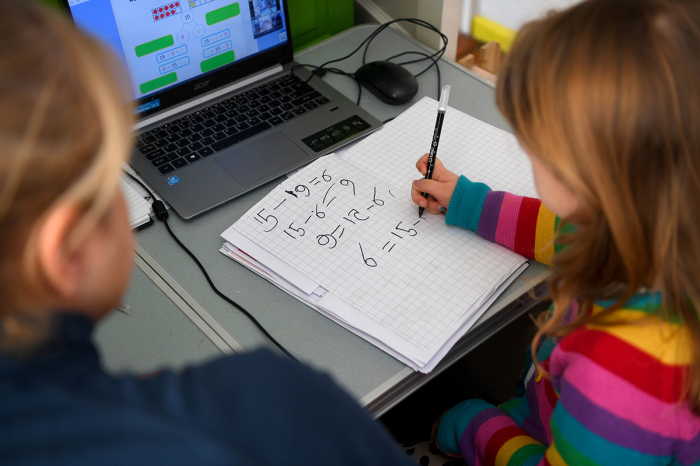Nearly 90% of parents believe their child is performing at grade level but reality is much worse

Nearly 90% of parents, the majority of whom say their child gets grades of B or higher in school, believe their children are performing at or above grade level in reading and math. However, data from standardized tests suggests the reality is much worse than what parents think.
A report from Gallup and Learning Heroes, titled "B-flation: How Good Grades Can Sideline Parents," suggests that not all grades are equal across schools because as little as 20% of students were meeting the grade-level standards for reading and math.
Data for the study was collected online from Oct. 2-9 through 1,971 surveys completed by U.S. adults who self-identified as a parent of a child in a public K-12 school. The schools included charter and magnet public schools, and the adults included mothers, fathers, legal guardians, foster parents and stepparents who said they were also guardians. Parents who said their children had a diagnosed and significant cognitive disability were excluded from the study.
A majority, 64%, of parents use report cards from their child's school to measure how well they're performing at grade level.
Researchers note that student report cards also consider attendance, participation and effort in measuring achievement. This weight on report cards, which is just one source of information on academic progress, can lead many parents to see good grades as a sign that their child is meeting grade-level standards.
While 88% of parents said their child is at or above grade level in reading, and 89% of them said the same for math, standardized tests such as the National Assessment of Educational Progress (NAEP), the Smarter Balanced Assessment System and the ACT suggest that the share of students meeting grade-level benchmarks in those subjects is between 20% to 50%.
Instead of just focusing on report cards, researchers suggest that parents need to glean information about their child's progress from multiple sources, such as ongoing feedback from teachers, statewide tests, and what they observe at home and in the classroom.
"As parents, we are a formidable force when it comes to our children. If there are issues to address, we'll address them. If there are actions to take, we'll take them. But we can't take action without information," Bibb Hubbard, founder and president of Learning Heroes, said in a statement. "This is a solvable problem, and we are leaving an incredible national asset — America's parents — on the sidelines, lulled into complacency by B-flation."
Data from the study shows that when parents know, for example, that their child isn't performing at grade level in math, they prioritize math skills. When parents believe their child is at or above grade level, however, their concern about the child's academic performance takes a backseat to concerns about their child's social issues like stress, emotional well-being, or the impact of social media.
"When parents think their child is below grade level in reading or math, they are more likely to discuss their concerns and those of their teachers. However, the number of parents who hold these concerns is still significantly less than the number of children below grade (roughly one-quarter of those who have conversations with their child's teacher are still not discussing their own concerns with their child's teacher)," researchers noted.
"These data show that when parents are informed about their child's academic challenges, they are more likely to engage with teachers and schools to support their child's development."
Contact: leonardo.blair@christianpost.com Follow Leonardo Blair on Twitter: @leoblair Follow Leonardo Blair on Facebook: LeoBlairChristianPost




























